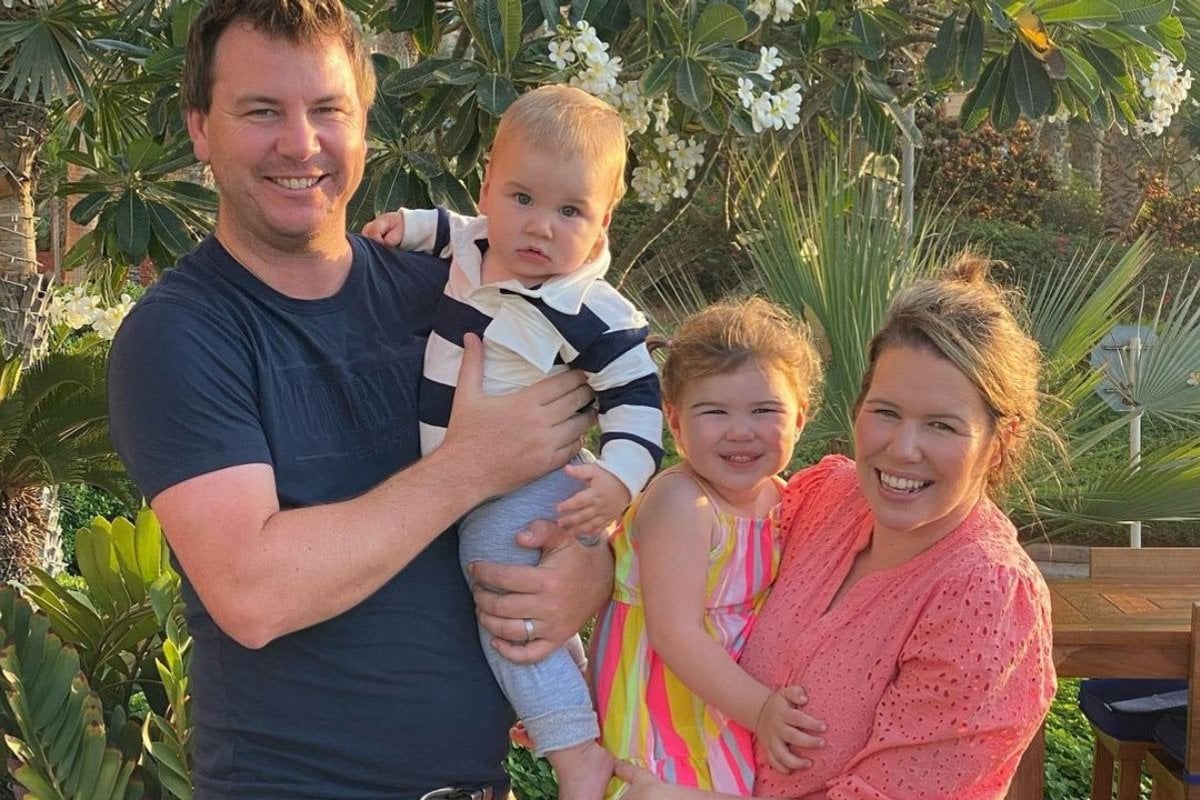
Being a mum is the hardest job in the world, just ask Dr Katie Hunter.
The 37-year-old is a Melbourne emergency doctor and is days away from having her third child.
She's been updating her 282,000 TikTok followers about all things parenthood as she prepares for life with three-under-three, and is the mum-guilt antidote you need to send to all new mums in your life.
Because yes, even Dr Katie Googled "how many wet nappies should my baby have?" in those first few weeks.
Watch: For a laugh, here's the horoscopes as new mums. Post continues after video.
And now months and years in, yes, even Dr Katie lets her kids have regular screen time, pre-packaged food and mountains of (bribe) snacks just to get through a Tuesday.
"I thought, being a doctor I would be a great mum because I know everything," she admits to Mamamia. "But actually, it's becoming a mum that's made me a better doctor."

